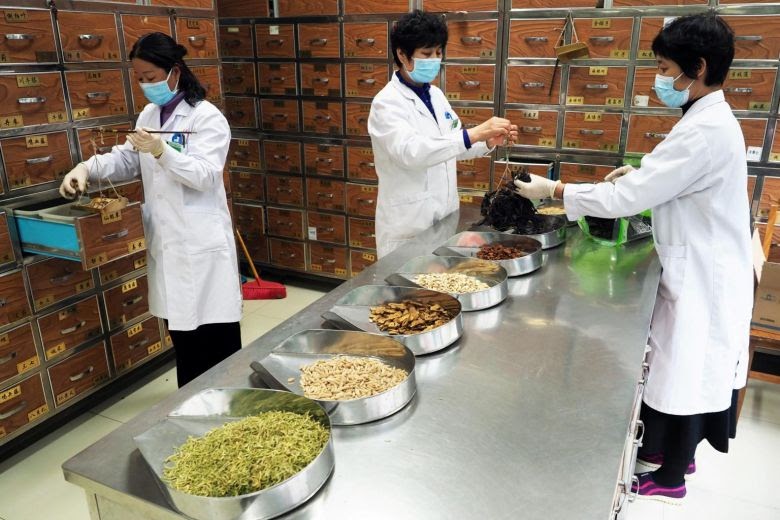China hasn’t given up on traditional Chinese medicine to treat COVID-19
When COVID-19 cases hit record highs in China earlier this year, the National Health Commission issued a plan encouraging doctors across the country to increase their use of traditional Chinese medicine. Now, as Beijing fights a reemergence of COVID-19 infections — after almost two months without a local case — the Chinese capital is suggesting a new string of TCM-based formulas designed to treat the disease.

When COVID-19 cases hit record highs in China earlier this year, the National Health Commission issued a plan encouraging doctors across the country to increase their use of traditional Chinese medicine. In response to the call, a group of TCM experts were dispatched to Wuhan, the hardest-hit city by the virus, where they held leadership roles in hospitals and used herbal remedies on patients.
Now, as Beijing fights a reemergence of COVID-19 infections — after almost two months without a local case — the Chinese capital is suggesting a new string of TCM-based formulas designed to treat the disease.
The treatment plan, recommended by Beijing Administration of Traditional Chinese Medicine in an announcement (in Chinese) on June 17, was an update to an array of TCM remedies issued by the National Health Commission in early February, which were widely used at medical facilities in Wuhan.
In the new version, there are two sets of prevention and treatment therapies for adults and children. The biggest difference (in Chinese) is the inclusion and heavy focus on Lianhua Qingwen capsules (莲花清瘟胶囊 liánhuāqīngwēnjiāonáng), a botanical drug normally used to treat flu symptoms.
In an interview with the People’s Daily, Liú Jǐngyuán 刘景源, a professor at Beijing University of Chinese Medicine, explained (in Chinese) that the changes were made in accordance with the current weather and the location of Beijing. Wang said that when the virus first emerged in Wuhan, it was the winter and dampness was at the root of many flu-like symptoms associated with the virus. But given that Beijing is currently experiencing the summer season, COVID-19 patients and people hoping to take preventive measures need to take a different approach, taking TCM medicines that help them clear “excessive heat and dryness” in their bodies.
Wang’s explanation is in line with some season-based theories in traditional Chinese medicine. One of the key principles in TCM is that human beings should live in harmony with the natural cycles of their environment. Therefore, TCM believers are advised to consume herbs that can warm their bodies in the winter, whereas they need to protect themselves from pathogenic heat in the summer.
Despite a lack of scientific evidence substantiating the effectiveness of TCM, Chinese health authorities have been promoting a range of TCM remedies as being effective at alleviating COVID-19 symptoms. In April, the National Health Commission reported (in Chinese) that of more than 80,000 people infected with COVID-19 since the outbreak occurred in December, roughly 91% took some form of TCM for treatment.
However, the aggressive push for TCM has not been without criticism. In addition to warnings of potential risks by foreign scientists, Chinese people skeptical of the ancient remedies have been reacting to TCM-related news with alarm and disbelief. But China seems determined to boost the usage of TCM nationwide and silence opposition voices. Earlier this month, Beijing unveiled a proposed regulation, which stipulated that those who “defame and slander” TCM would be subject to punishment or face criminal responsibility.






